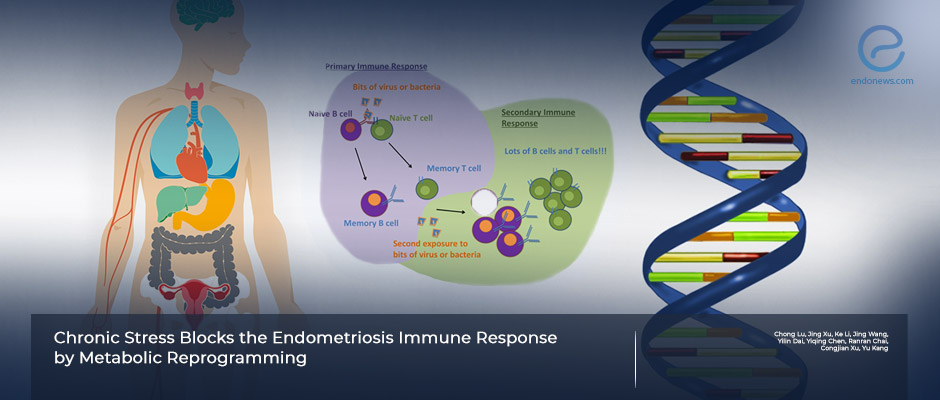Chronic stress may be involved both in the pathogenesis and progression of endometriosis
Mar 26, 2024
Research on chronically stressed endometriosis patients yields unique findings
Key Points
Highlights:
- It is a well known fact that during the natural course of endometriosis many patients are under chronic stress, including depression, anxiety, besides having low social support.
Importance:
- There is ample evidence that chronic stress has an important impact on the progression and/or pathogenesis of endometriosis.
What's done here:
- The authors have utilized an mRNA Human Gene Expression Microarray analysis in exploring the difference in the mRNA expression profiles between chronic stress and control endometriosis patients.
Main key features :
- Chronicity of a stressful environment reduces the supply of energy substrates like arginine and serine.
- In addition, chronic stress disrupts anti-tumor immune responses via down-regulating T lymphocyte activation, so that it provokes migration and invasion of ectopic endometriotic tissues.
Lay Summary
Chong Lu and associates from Shangai, China have published their novel research on chronic stress and endometriosis in a recent issue of International Journal of Molecular Sciences.
During the natural course of endometriosis many patients are under chronic stress, which may yield depression, anxiety, and low social support, however, there is also an intriguing dilemma whether chronic stressful environment could cause endometriosis too.
Patients confirmed as having endometriosis via intraoperative pathology consultations were recruited from the Fudan University Affiliated Obstetrics and Gynecology Hospital. A total of 30 patients were included in this study that were categorized into a chronic stress group and a control group based on their psychological rating scales. Patient health questionnaire and generalized anxiety disorder scale were utilized in assessing the psychological status of these patients.
An mRNA Human Gene Expression Microarray analysis was applied to compare the mRNA expression profiles between the chronic stress group and the control group. The reliability of the mRNA Human Gene Expression Microarray analysis was verified by using research on metabolites based on both the liquid chromatography and quantitative reverse transcription polymerase chain reaction.
A total of 30 patients were included in this research, and categorized into a chronic stress group and a control group depending on their psychological assessment.
In total, 34,757 expressed genes were found in the endometriosis biopsies and among these 1381 mRNAs were identified as differentially expressed in the chronic stress group tissues versus control tissues. A total of 689 of these mRNAs were up-regulated and 692 were down-regulated in the chronic stress patient biopsies.
Liquid chromatography showed that the differential metabolites were primarily concerned with arginine and proline metabolism, D-glutamine and D-glutamate metabolism, aspartate metabolism, glycine, serine metabolism, and tyrosine metabolism (p < 0.05).
The findings of this research suggests that chronic stress lowers the supply of energy substrates such as arginine and serine, down-regulates T lymphocyte activation, and thereby weakens anti-tumor immune defence so-that promotes the migration and invasion of ectopic endometriotic tissues in this milieu of this metabolic derangement.
Research Source: https://pubmed.ncbi.nlm.nih.gov/38203209/
chronic stress endometriosis immune response mRNA

